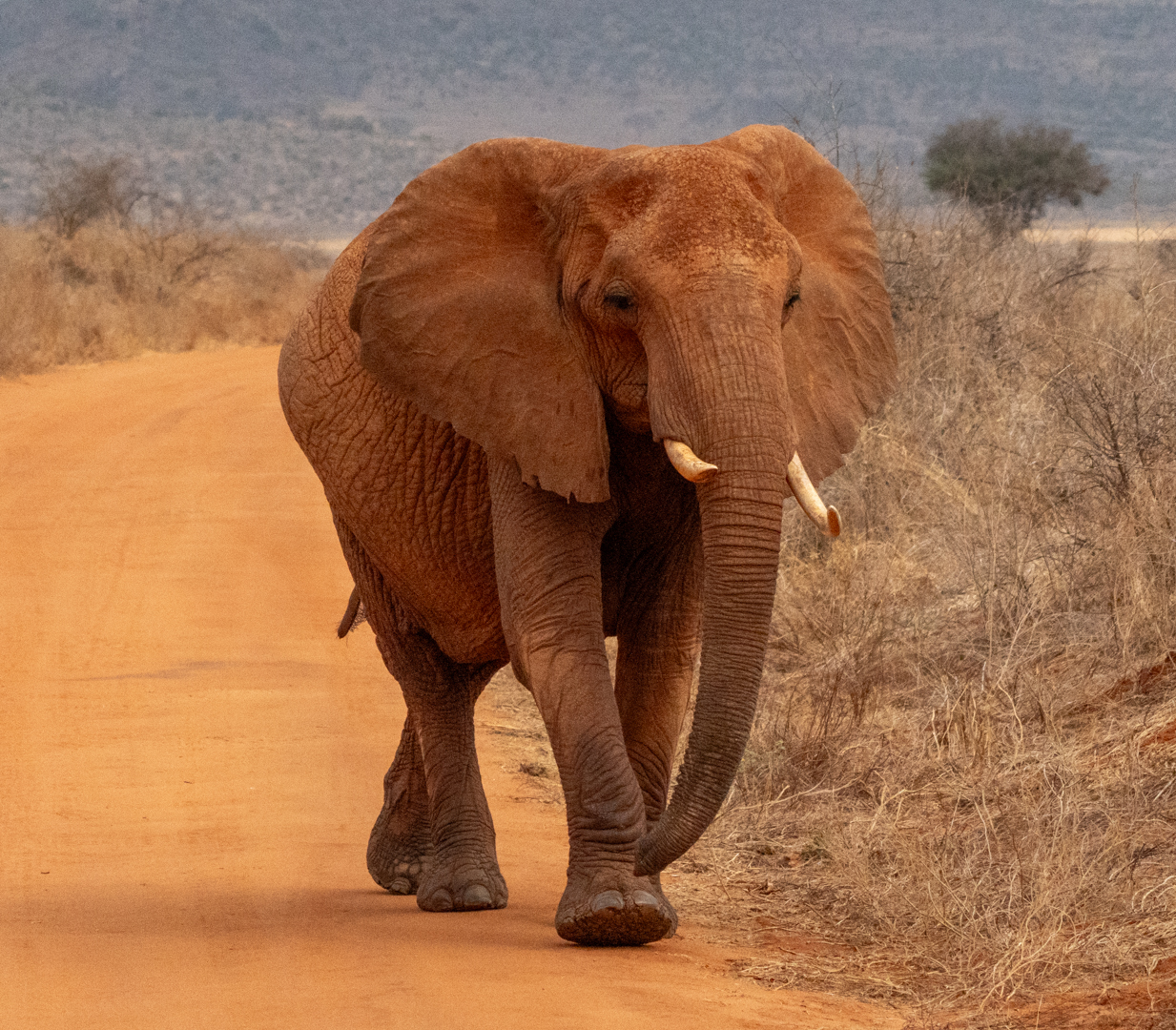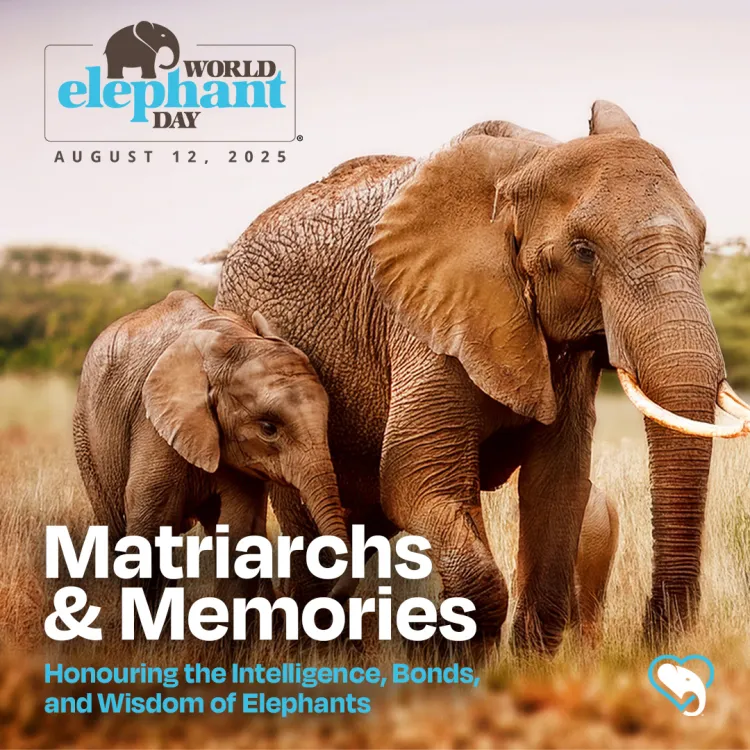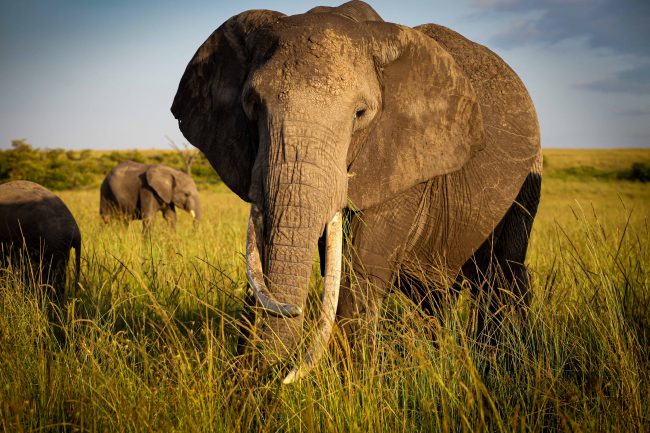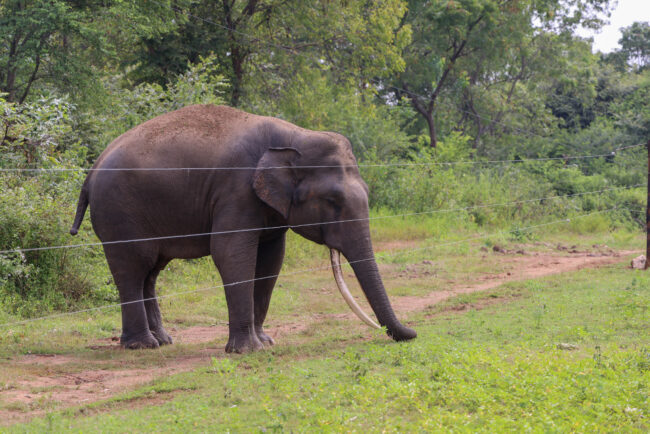A Glimpse into the Female-Led Societies of Elephants
Every group needs a great leader—and in elephant society, that leader is the Matriarch. She is the oldest and wisest female in the herd: the leader, protector, teacher, and keeper of ancestral wisdom.
In this fictional story, based on the lives of real elephants, you’ll come to understand the critical role of the Matriarch, explored through the life of two new elephant calves: Jasiri and Zawadi—and their fearless leader, Matriarch Jelani.
The Story of Jelani, Zawadi, and Jasiri
New Beginnings
Jelani, whose name means “strong, great, mighty” in Swahili, is the Matriarch of the herd. She has led her family herd across the plains of Kenya, for over a decade and is now 55 years old. She is one of the few who remembers the path to the river that runs even in drought. Her tusks are worn and her wisdom is deep.
This season, the herd celebrates two new calves: Jasiri, a female (“courage”) and Zawadi, a male (“gift”), born just days apart to different mothers. Both are over 200 pounds at birth, after nearly 22 months of gestation, the longest pregnancy of any land mammal. They are welcomed not just by their mothers, but by aunts, cousins, sisters and grandmothers. Elephant families are female-led and matrilineal, calves are raised collectively by the females, a behavior known as allomothering — essential for survival in the wild.
Jasiri, like most female calves, is more social and nurturing, forging strong bonds with other herd members. Zawadi, on the other hand, like many male calves, is more playful and assertive, and loves to roam independently. Under the herd’s watchful eye, both thrive.
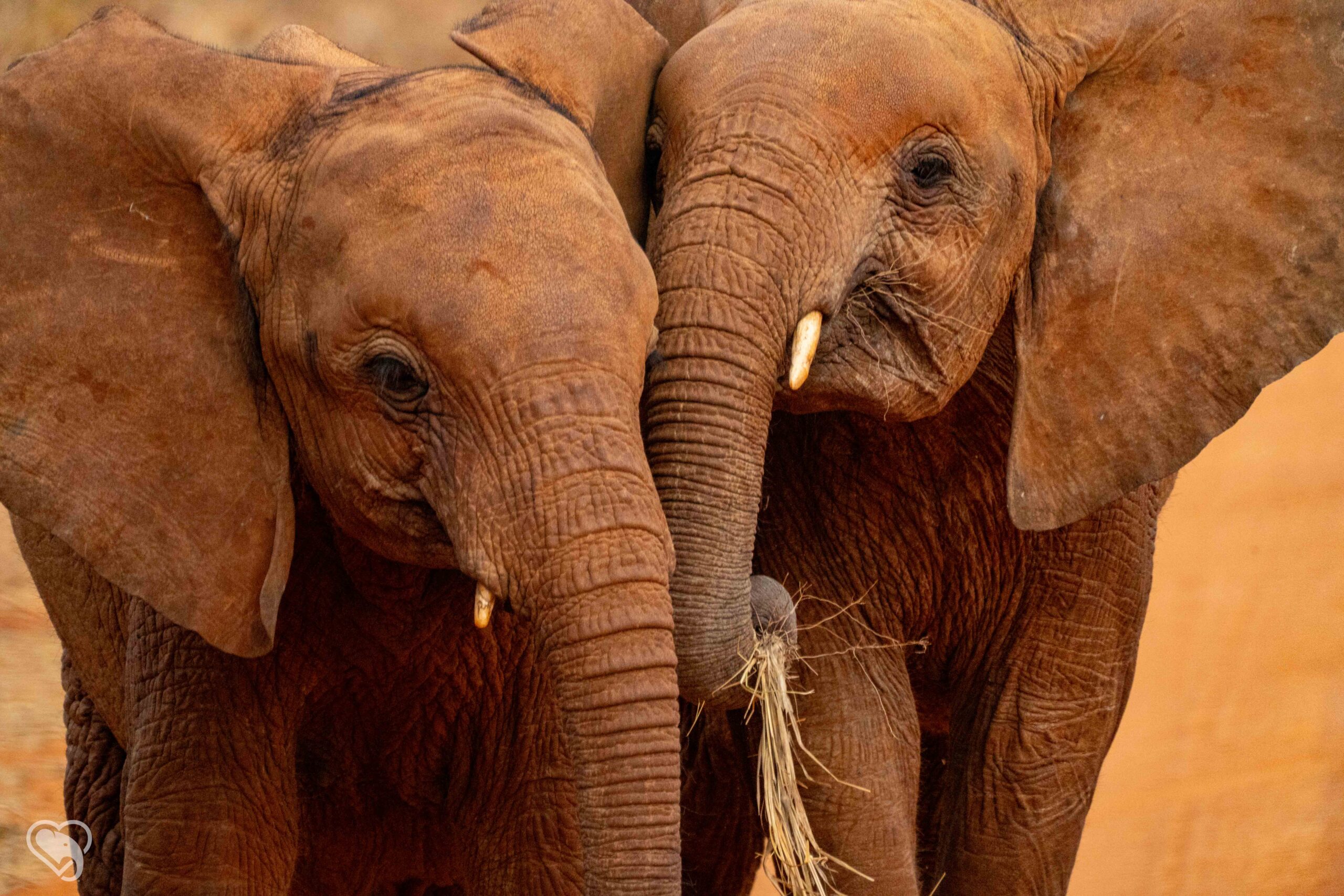
Two young African elephants. Photo: Patricia Sims
Learning Through Living
From their first steps, the calves begin learning by example. Elephants have an extraordinary capacity to remember and imitate.They learn where to dig for water by watching the matriarch and other experienced females, like their mothers and allomothers. They learn how to soothe a distressed sibling by witnessing how Matriarch Jelani gently touches grieving herd members with her trunk.
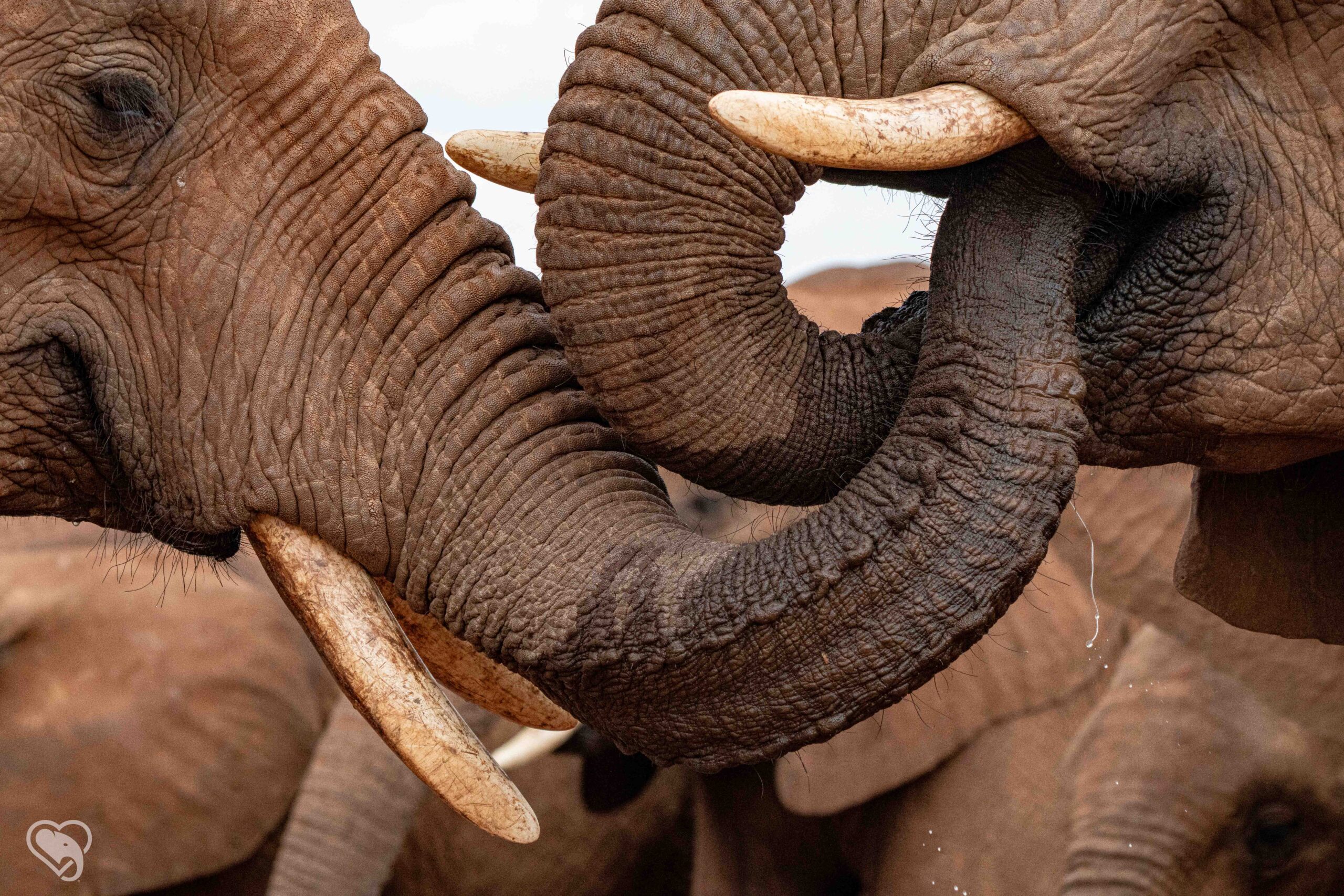
Elephants are tactile communicators. Photo: Patricia Sims
Males like Zawadi typically leave the herd around age 12 to 15, setting out alone or joining loose bachelor groups — a natural process that reduces competition and prevents inbreeding.Though they may interact with female herds during mating periods, adult males do not participate in raising calves. In this matriarchal society, it is the females who lead, nurture, and pass on the wisdom of the land. It is through raising the calves together with guidance from Matriarch Jelani that they thrive. Jasiri will stay with the herd and grow up surrounded by generations of female relatives.
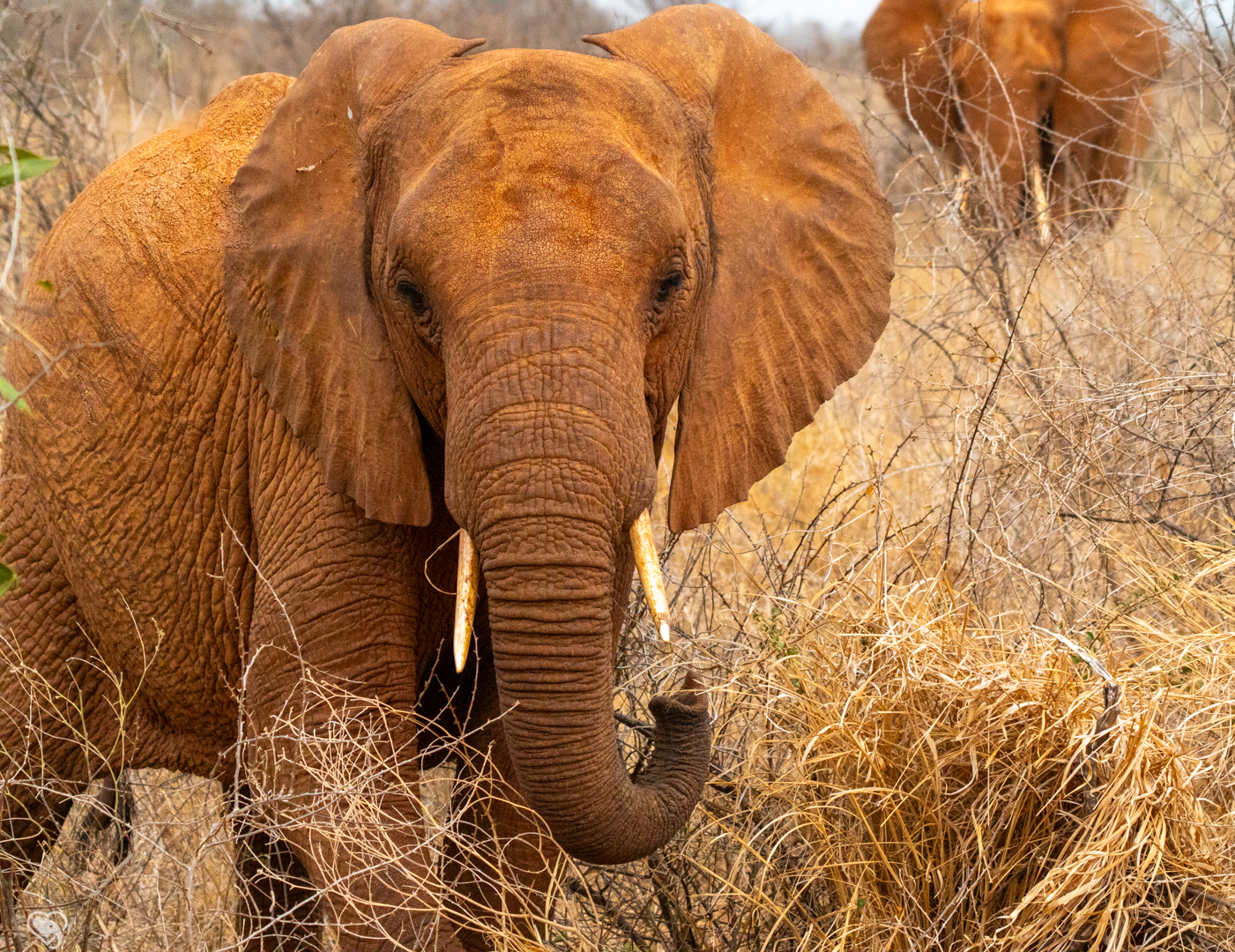
Young bull in Tsavo, Kenya. Photo: Patricia Sims
The Matriarch’s Wisdom
Matriarch Jelani leads through the wisdom of decades of her lived experience. Over the years, she has learned where to find water during drought, which migration routes are safest, and how to respond to threats. Her knowledge has been shaped by seasons of abundance and hardship, by watching other matriarchs before her, and by leading her herd through change.
Older matriarchs like Jelani are especially skilled at recognizing danger. Research shows they can distinguish between different predator calls and make more accurate decisions about when to respond. This helps the herd avoid unnecessary panic or exposure to real risk.
She also holds a mental map of the landscape. She remembers where waterholes once formed after long rains, where the herd has encountered poachers, and which areas are safe for calves.
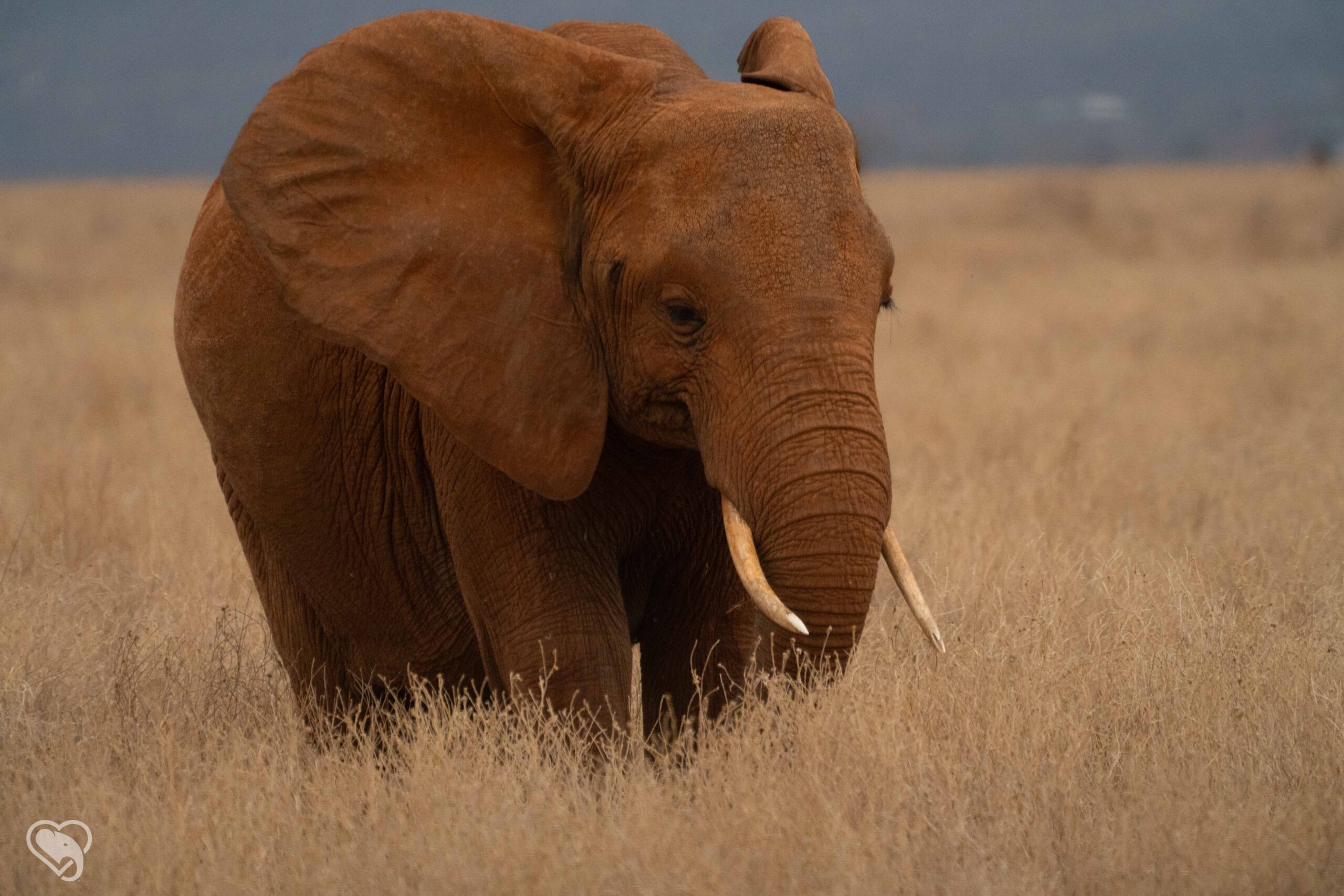
Matriarch in Tsavo, Kenya. Photo: Patricia Sims
Elephants communicate using low-frequency rumbles, known as infrasound, which can travel several kilometers both through the air and through the ground. These sounds are detected not only with their large ears, but also through the sensitive pads on their feet, which pick up seismic vibrations. By combining hearing and feeling, elephants stay connected even when far apart. Matriarch Jelani uses these deep calls to guide and coordinate the herd across the savanna.
Passing of the Torch
At age 70, Matriarch Jelani dies peacefully near an acacia tree, marking a great loss for the herd. The herd mourns her by touching her body with their trunks and rumbling softly. They stay near her, mourning the loss of their leader. Elephants have been observed returning to the bones of their dead, mourning with a depth of emotion rarely seen in the wild. Even after months or years, they will remember this spot and return to honour her. Jelani’s sister, Nia—the next oldest and most experienced female becomes the new Matriarch for the herd. This herd is lucky enough to have elders to continue to pass the knowledge. Without these elders, the survival rate of the whole herd goes down, a major problem due to the many threats elephants face.
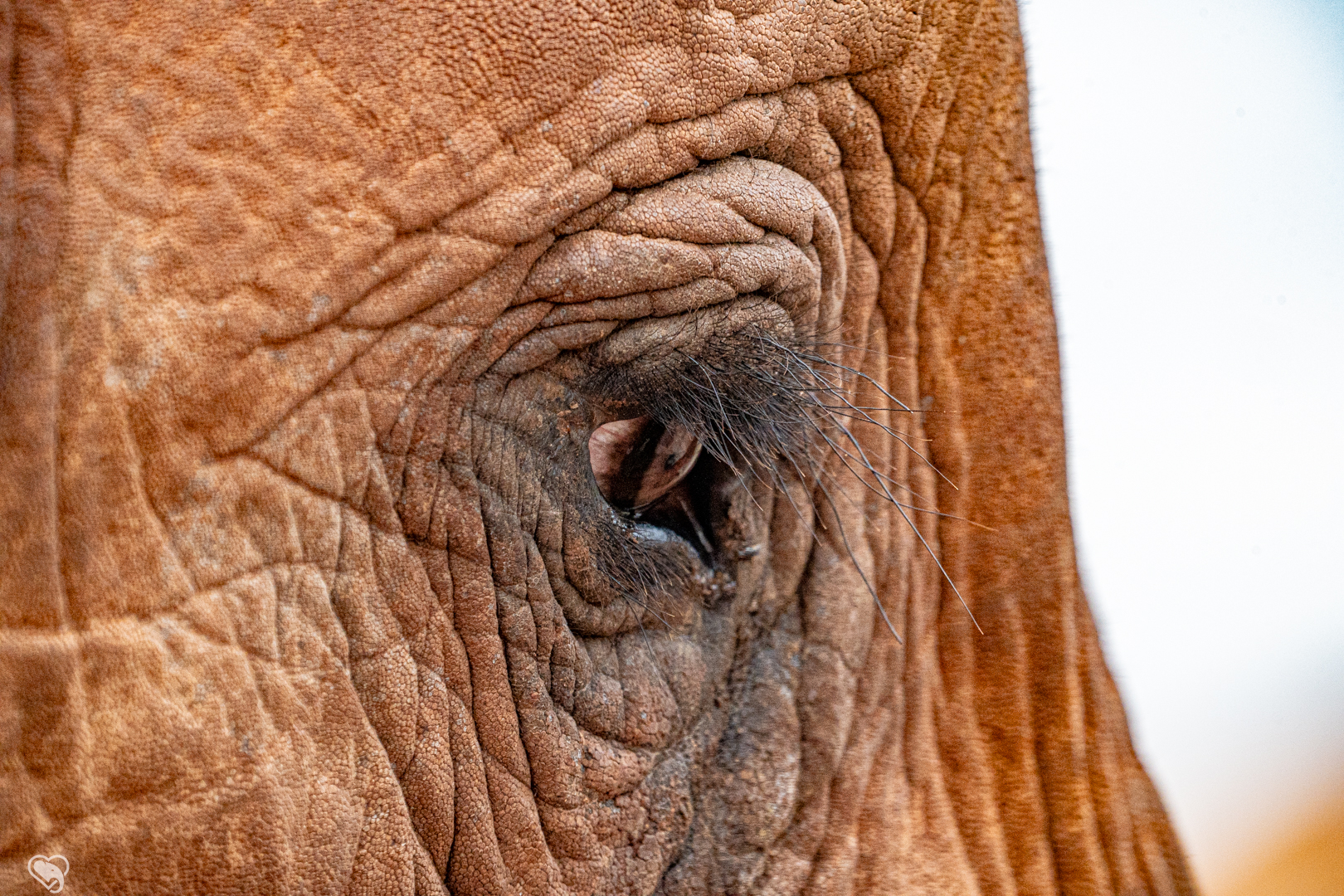
Deep thoughts. Photo: Patricia Sims
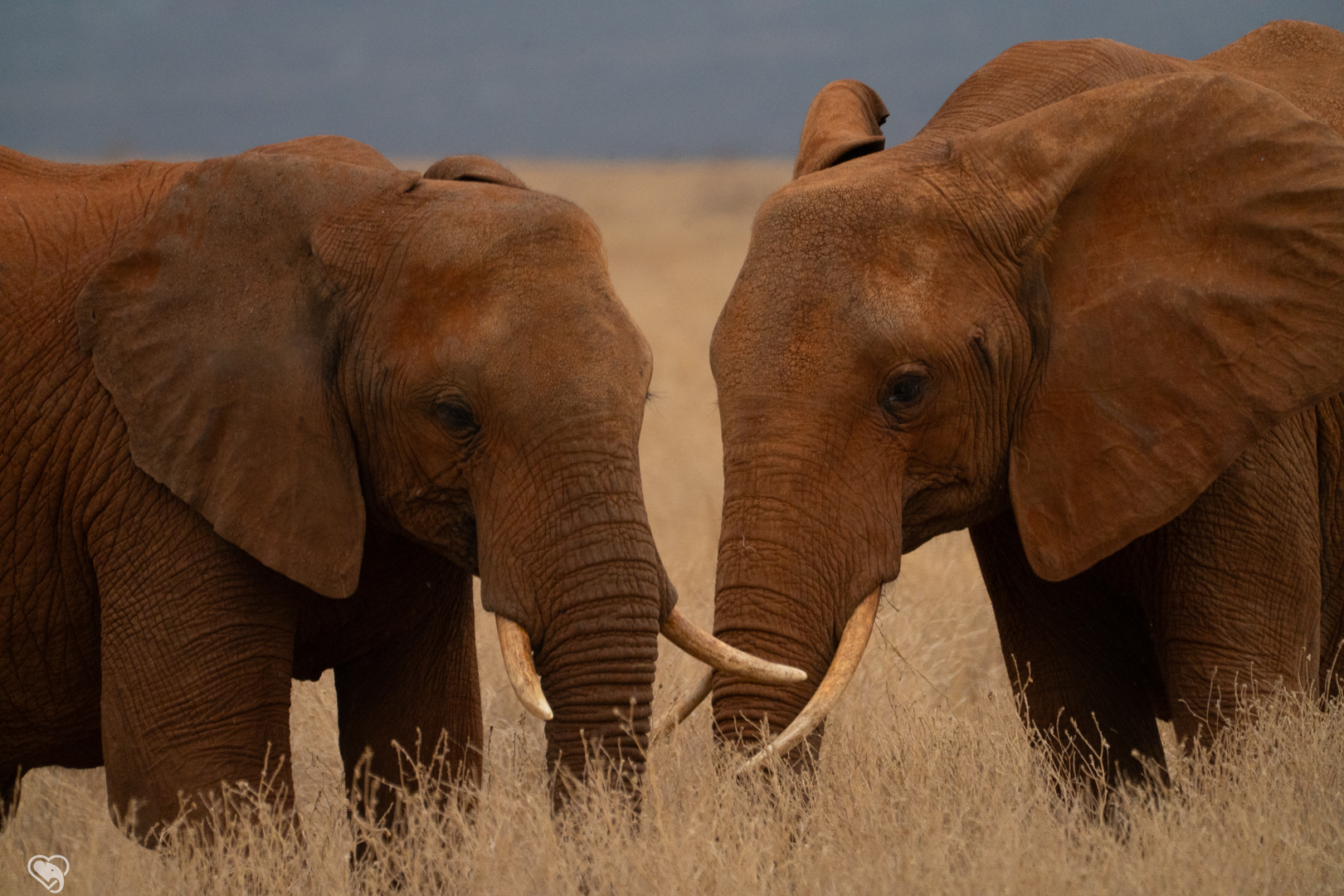
Sharing of knowledge. Photo: Patricia Sims
The Memory Lives On
Zawadi and Jasiri’s paths have begun to diverge. Zawadi now roams on his own, as male elephants do, exploring new landscapes and beginning his role in the cycle of life.
Jasiri remains close to her herd, walking with confidence and growing into her place among the females. She watches, listens, and learns — from her mother, her aunts, and the matriarch who now leads them. One day, she may become a matriarch herself.
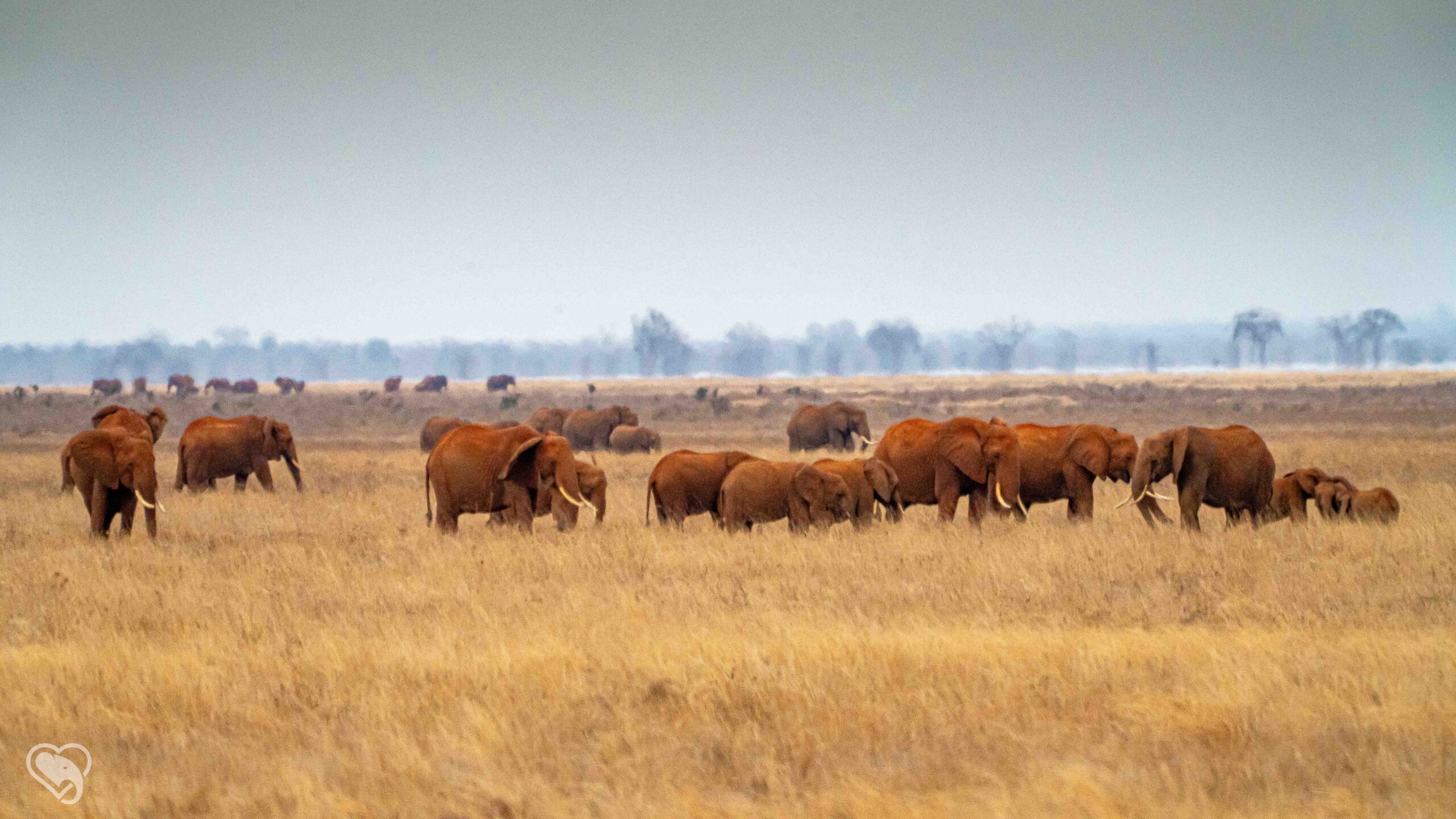
Elephant family, Tsavo, Kenya. Photo: Patricia Sims
Matriarchs and Memories
This year at World Elephant Day, we are on a mission to keep the memories of the matriarchs alive—and in true matriarch fashion, we know the way to do that is through stories. This is why we’ve launched the Emerging Storyteller Fund to support and mentor young storytellers in elephant range countries so their voices can carry the wisdom of the matriarchs into the future.
Please click here to donate to the Emerging Storyteller Fund
________________________________________________________________________
Written by Caleigh Campbell for World Elephant Day
Executive Director, Patricia Sims
________________________________________________________________________
Sources:
- National Geographic: When elephant moms need help, nannies step in
- National Geographic: Rare Video Shows Elephants ‘Mourning’ Matriarch’s Death
- Kruger Park: Elephants Feel It in Their Feet
- Tsavo Trust: The Importance of Elephant Matriarchs
- Family Education: Swahili First Names
- The Bump: Jelani Baby Name
- Elephant Voices: Elephants are Socially Complex

